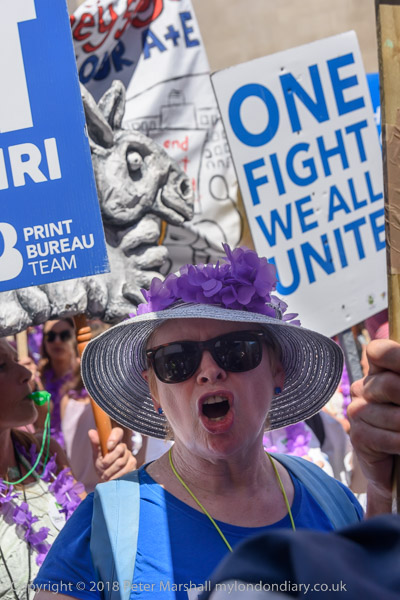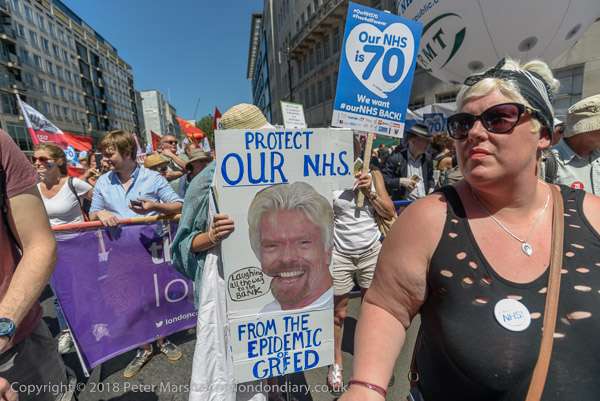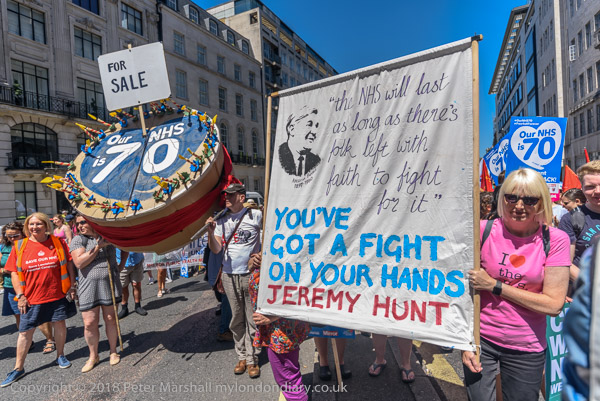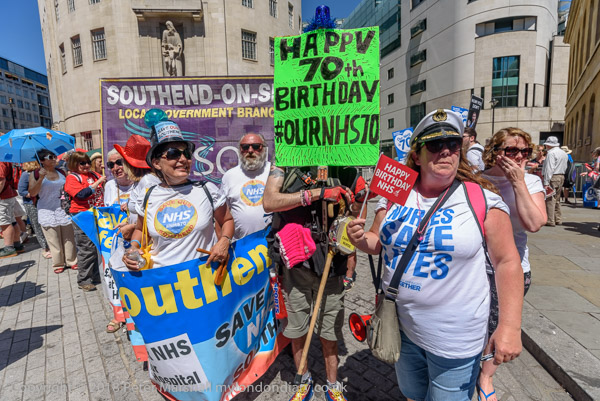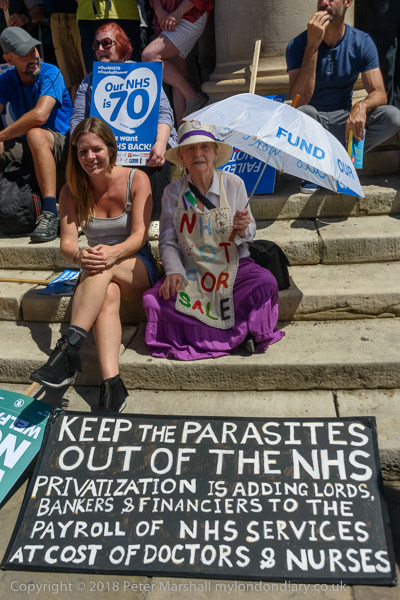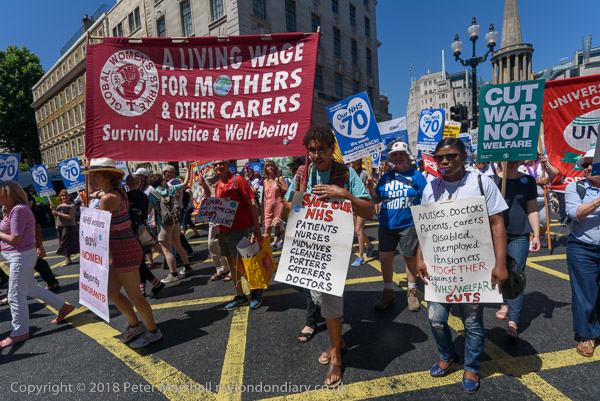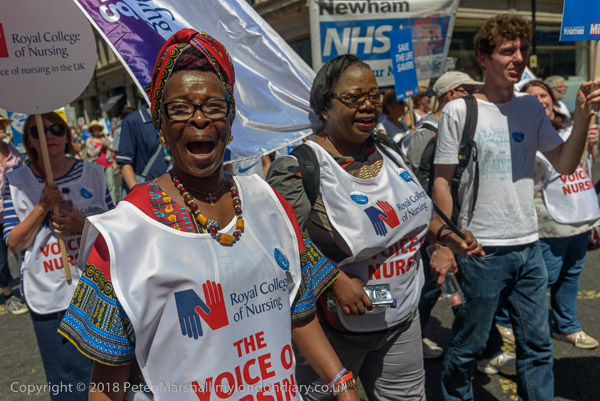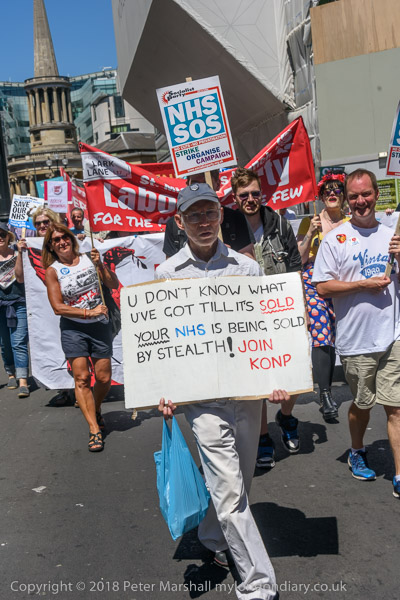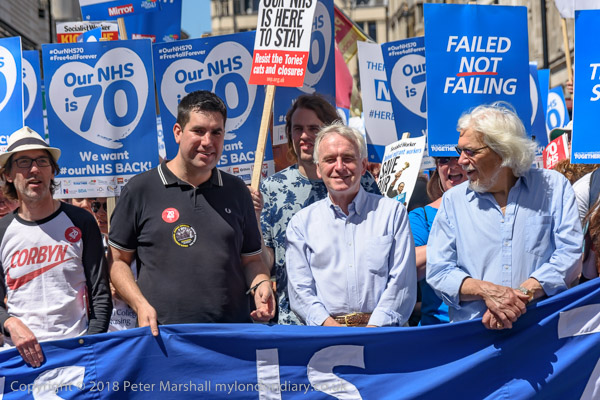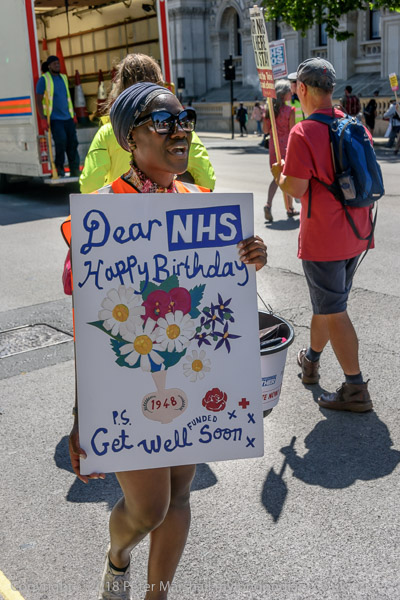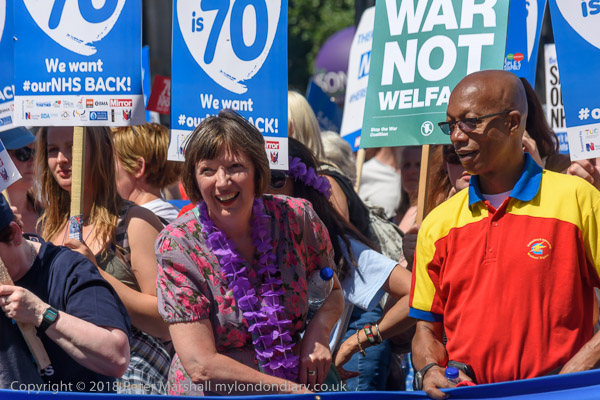Save Our NHS – The NHS was under attack by the Conservatives before it was established in 1948 and has come under repeated attacks since by governments of both major parties particularly since the 1990s.
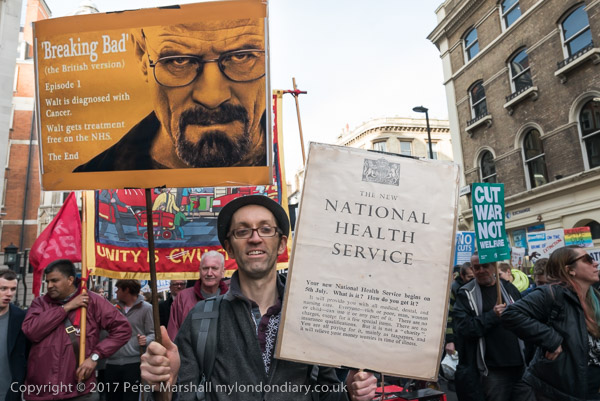
Providing universal healthcare costs and the current financial year (2023/24) figure of £160.4 billion is around one seventh of total government spending of around £1,200 billion. So it isn’t surprising that governments should wish to see that the money is being spent wisely. But that isn’t was most changes in government health policy have been about.
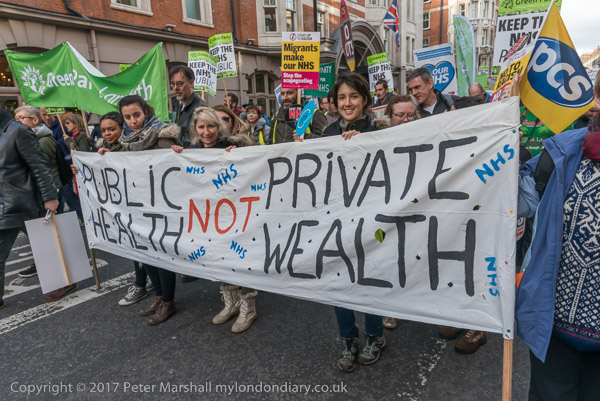
Even with that large sum, the UK is still getting healthcare on the cheap. According to Statista the spending per person is less than in the US, Switzerland, Germany, Norway, Netherlands, Austria, Belgium, Australia, France, Sweden, Luxembourg, Canada, Denmark, New Zealand, Ireland and Finland and roughly the same as in Iceland and Japan.
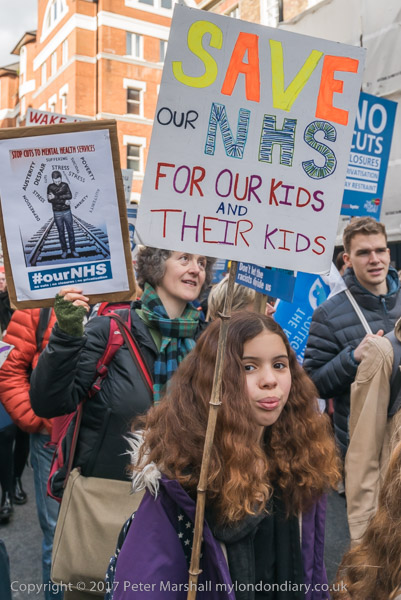
It’s perhaps not surprising given this that we often hear reports which compare the results of NHS care critically with those in other countries. But those reports on the BBC and in the papers seldom if ever mention the poorer funding the NHS receives than many of those with better health outcomes.
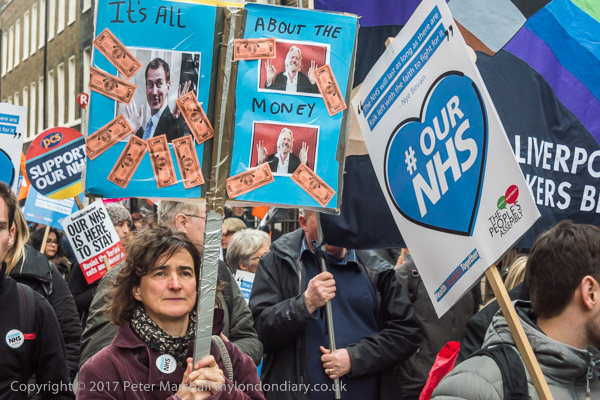
The US spend per person is considerably higher than all other countries and roughly two and a quarter times that in the UK. But many of the NHS reforms made this century have been based on making our health system more like the American model, which would be a disaster. But it would mean a great opportunity for private healthcare companies, particularly some of those US companies, to make huge profits at our expense.
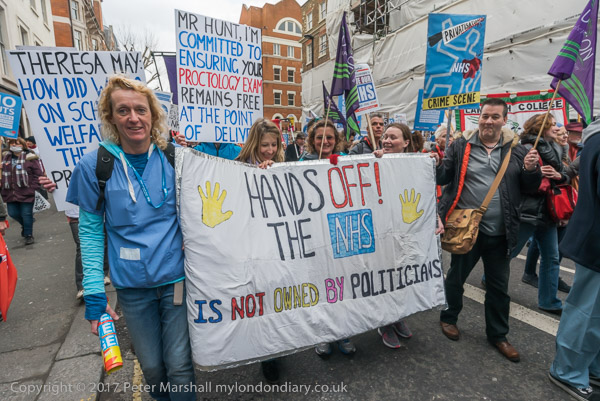
A surprising number of our MPs have had some financial interest in healthcare either through shareholdings or by sponsorships. The Daily Mirror in 2014 published a list of 70 MPs with links to private healthcare firms which included almost every leading Tory and some from other parties. As well as then Prime Minister David Cameron, they included Former Health Secretary Andrew Lansley, responsible for the disastrous Health and Social Care Act 2012, Health Secretary Jeremy Hunt, former Health Minister Simon Burns, the Work and Pensions Secretary Iain Duncan-Smith, William Hague, Philip Hammond, Sajid Javid, Oliver Letwin, Chancellor George Osborne, Priti Patel, Jacob Rees-Mogg and many other leading Tories, along with Lib-Dems then in the coalition government Vince Cable, Nick Clegg and Simon Hughes.
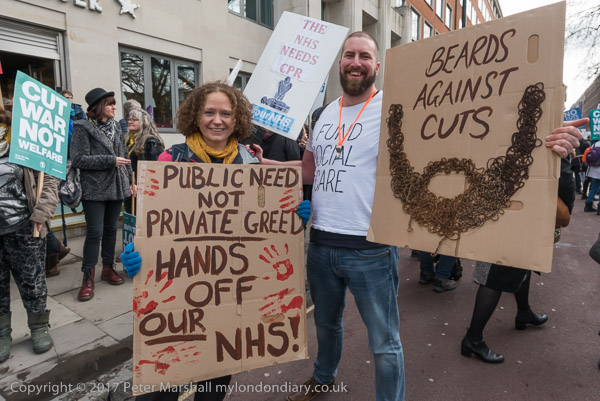
It’s these people who have introduced policies which have led to large areas of NHS services being provided by private companies, though still retaining the NHS logo and still providing services free to the public. But generally these are the kind of simple, straightforward services and the more complex areas are still left to the NHS.
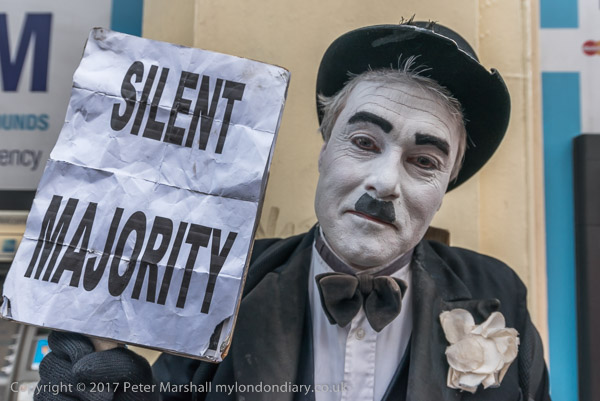
There is still huge public support for the NHS, despite its problems some of which have been created possibly deliberately by government reforms to erode that support, though more clearly in a drive to make more of its services available to be taken over by private companies.

On Saturday March 4th 2017, thousands came to Tavistock Square, outside the BMA headquarters to march to Parliament Square in protest against the cuts and privatisation of the NHS which they said was at breaking point.
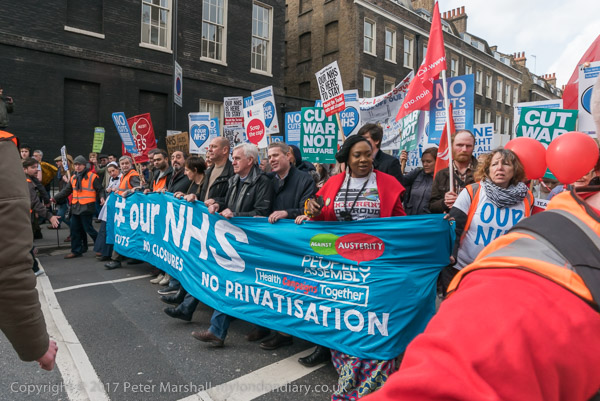
In particular they were protesting the Sustainability and Transformation Plans for hospital closures and cuts in services which had already caused many premature deaths. Doctors and other healthcare workers clearly saw these as a part of a rapid stealthy privatisation with medical services increasingly being run for private profit rather than public benefit.
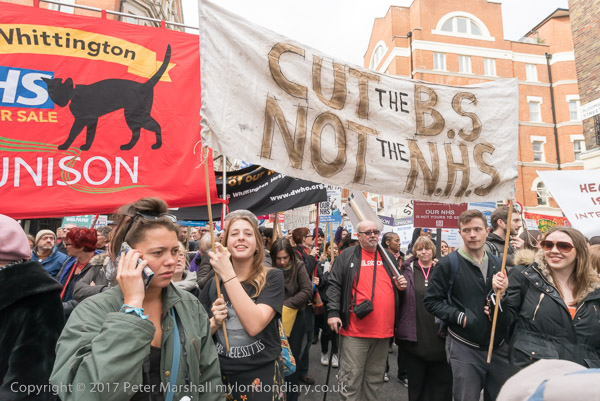
In 2017 the STPs mutated into Sustainability and Transformation Partnerships and in 2018 these were told to transform themselves into Integrated Care Systems which have now replaced Clinical Commisioning Groups. These plan, buy, and provide health and care services in there areas and are subject to inspection under 70 performance metrics and can be put into ‘special measures’.
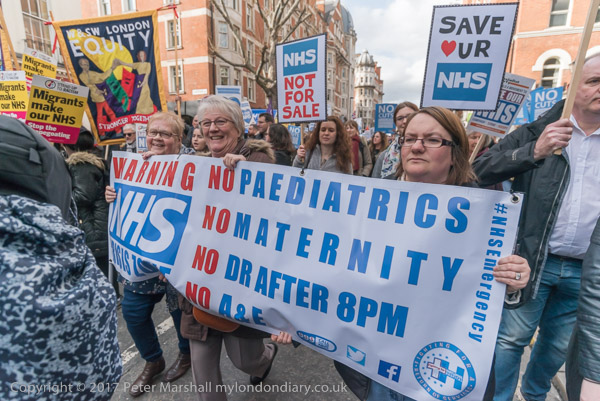
According to the Wikipedia article “A report from the Nuffield Trust in December 2021 found that there was very little evidence that integration policies across the UK – including pooling budgets and creating new integrated boards and committees – had dramatically improved patient experience, quality of services or supported the delivery of more care outside of hospitals.” But clearly they had diverted a considerable amount of expertise, time, energy and money away from the real business of the health service – and funding towards private companies.

Estimates for the number on the march varied even more wildly than usual, but it was clearly a large march. My guess was perhaps 30,000 but it could well have been twice that if not the 250,000 the organisers claimed. All the pictures in this post come from the march and the rally before the start, and I was too tired by the time it reached Westminster to photography the rally in Parliament Square.
Flickr – Facebook – My London Diary – Hull Photos – Lea Valley – Paris
London’s Industrial Heritage – London Photos
All photographs on this page are copyright © Peter Marshall.
Contact me to buy prints or licence to reproduce.

